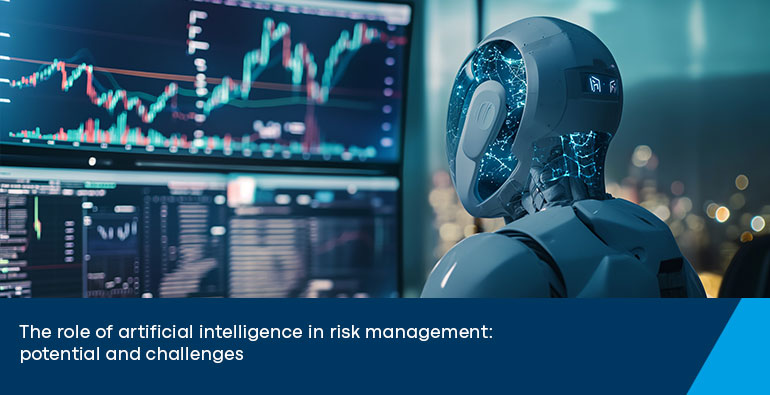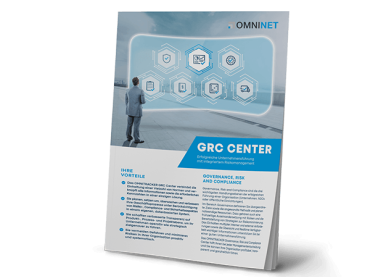The role of artificial intelligence in risk management: potential and challenges for companies

Nowadays, companies not only have to identify and minimize ever more diverse existing risks, but also anticipate potential future threats. This is where artificial intelligence (AI) comes into play, as it has the potential to fundamentally change risk management. This article looks at how AI can revolutionize risk management, the challenges involved and concludes with recommendations for integrating AI tools.
AI in risk management
Artificial intelligence refers to systems or machines that exhibit human-like intelligence by performing complex tasks, learning and adapting to new situations. In the context of risk management, AI enables in-depth analysis of large volumes of data in order to identify and predict risks more quickly and derive appropriate measures.
Potential of artificial intelligence in risk management
1. Risk detection and assessment: AI systems can analyze unstructured data from various sources to identify risks that human analysts may miss. By using machine learning and natural language processing, these systems can recognize trends that indicate emerging risks.
2. Prediction and prevention: In addition to identifying existing risks, AI can also predict future threats. Predictive analytics enables companies to take proactive measures to mitigate potential risks before they materialize.
3. Increased efficiency: AI can automate routine risk management tasks, leaving more time for more strategic tasks. This leads to more efficient risk assessment and management.
Challenges when implementing AI in risk management
Despite the considerable advantages that AI offers for risk management, it should not be trusted blindly. Strict controls are necessary to overcome the challenges and avoid potential errors when using AI:
1. Data quality and access: the effectiveness of AI systems depends heavily on the quality and availability of data. Inaccurate, incomplete or distorted data can lead to incorrect assessments.
2. Complexity and transparency: AI models, especially those based on deep learning, can be extremely complex. This complexity makes it difficult to track and understand decision-making processes, which can hinder stakeholder acceptance.
3. Ethics and data protection: The use of AI raises questions regarding ethics, data and information protection. Companies must ensure that their AI systems adhere to ethical standards and do not violate data protection laws. When choosing an AI, attention should be paid to an appropriate level of information security.
What you should consider when implementing AI in risk management
Artificial intelligence offers immense opportunities to improve risk management in companies. With the ability to analyze large amounts of data and draw conclusions, AI systems can help to identify, assess and mitigate risks more effectively. However, integration requires careful planning and consideration of potential challenges.
For risk managers considering the use of AI, it is advisable to start with pilot projects to understand the potential and limitations of AI in their specific context. It is also important to invest in data quality and integration as well as staff training to promote both understanding and acceptance of AI tools.
Ultimately, integrating AI into risk management can give organizations a significant competitive advantage by helping to identify and manage risks more accurately and quickly. However, decision-makers should keep ethical and privacy considerations in mind to maintain stakeholder trust.
Newsletter sign-up
Would you like to stay up to date on digital service management, GRC and automation? In our newsletter, we inform you about relevant blog posts and professional articles. We also regularly send you information about events, DACH-wide trade fairs and our free live sessions in the areas of service management, process automation, GRC and analytics with business intelligence. We will inform you about new features of the OMNITRACKER business process platform.

